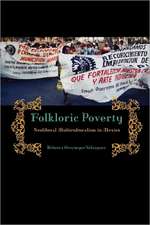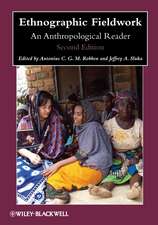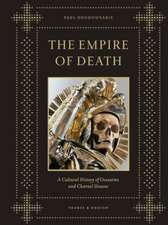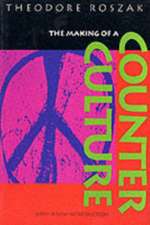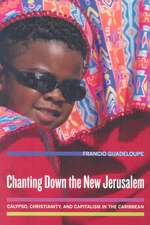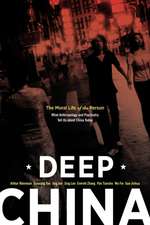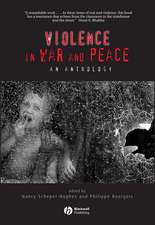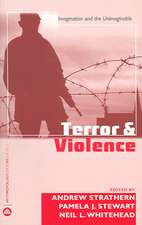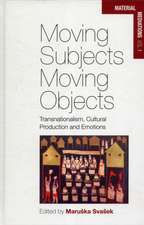Unsettled – Denial and Belonging Among White Kenyans: Ethnographic Studies in Subjectivity
Autor Janet Mcintoshen Limba Engleză Paperback – 23 iun 2016
| Toate formatele și edițiile | Preț | Express |
|---|---|---|
| Paperback (1) | 233.47 lei 6-8 săpt. | |
| University of California Press – 23 iun 2016 | 233.47 lei 6-8 săpt. | |
| Hardback (1) | 550.23 lei 6-8 săpt. | |
| University of California Press – 23 iun 2016 | 550.23 lei 6-8 săpt. |
Preț: 233.47 lei
Nou
Puncte Express: 350
Preț estimativ în valută:
44.69€ • 46.91$ • 36.92£
44.69€ • 46.91$ • 36.92£
Carte tipărită la comandă
Livrare economică 30 ianuarie-13 februarie 25
Preluare comenzi: 021 569.72.76
Specificații
ISBN-13: 9780520290518
ISBN-10: 0520290518
Pagini: 310
Dimensiuni: 152 x 229 x 23 mm
Greutate: 0.41 kg
Editura: University of California Press
Seria Ethnographic Studies in Subjectivity
ISBN-10: 0520290518
Pagini: 310
Dimensiuni: 152 x 229 x 23 mm
Greutate: 0.41 kg
Editura: University of California Press
Seria Ethnographic Studies in Subjectivity
Descriere
Descriere de la o altă ediție sau format:
In 1963, Kenya gained independence from Britain, ending nearly seventy years of white colonial rule. Many whites relocated outside Kenya, but some stayed. Over the past decade, however, protests, scandals, and upheavals have unsettled families with colonial origins, reminding them of the tenuousness of their full acceptance in Kenya. From clinging to a lost colonial identity to embracing a new Kenyan nationality, white settler descendants living in post-Independence Kenya have undergone changes fraught with ambiguity. Drawing on fieldwork and interviews, Janet McIntosh asks: What stories do settler descendants tell about their claims to belong in Kenya? How do they situate themselves vis-à-vis the colonial past and anticolonial sentiment, phrasing and rephrasing memories and judgments as they seek a position they feel is ethically acceptable? Straining to defend their entitlements in the face of mounting Kenyan rhetoric of ancestry and autochthony, settler descendants offer contradictory and diverse responses: moral double consciousness, aspirations to uplift the nation, ideological blind spots, denial, and self-doubt. In discussions ranging from land rights to language and from romantic intimacy to the African occult, Unsettled presents a unique perspective on whiteness in a postcolonial context and a groundbreaking theory of elite subjectivity.
In 1963, Kenya gained independence from Britain, ending nearly seventy years of white colonial rule. Many whites relocated outside Kenya, but some stayed. Over the past decade, however, protests, scandals, and upheavals have unsettled families with colonial origins, reminding them of the tenuousness of their full acceptance in Kenya. From clinging to a lost colonial identity to embracing a new Kenyan nationality, white settler descendants living in post-Independence Kenya have undergone changes fraught with ambiguity. Drawing on fieldwork and interviews, Janet McIntosh asks: What stories do settler descendants tell about their claims to belong in Kenya? How do they situate themselves vis-à-vis the colonial past and anticolonial sentiment, phrasing and rephrasing memories and judgments as they seek a position they feel is ethically acceptable? Straining to defend their entitlements in the face of mounting Kenyan rhetoric of ancestry and autochthony, settler descendants offer contradictory and diverse responses: moral double consciousness, aspirations to uplift the nation, ideological blind spots, denial, and self-doubt. In discussions ranging from land rights to language and from romantic intimacy to the African occult, Unsettled presents a unique perspective on whiteness in a postcolonial context and a groundbreaking theory of elite subjectivity.















